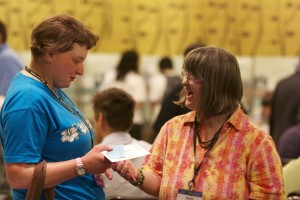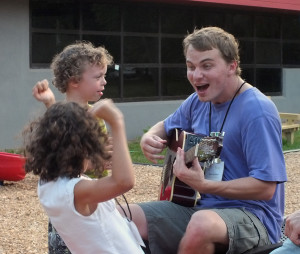The Arc Responds to U.S. Supreme Court Decision in Hall v. Florida
The Arc released the following statement following news that the U.S. Supreme Court ruled in favor of Freddie Lee Hall in the case Hall v. Florida, a death penalty case concerning the definition of intellectual disability (ID) that Florida uses in deciding whether an individual with that disability is protected by the Court’s decision in Atkins v. Virginia. In 2002, the Supreme Court ruled in the Atkins v. Virginia case that executing inmates with ID is unconstitutional as it violates the Eighth Amendment ban on cruel and unusual punishment.
The Supreme Court ruled 5-4 in favor of Hall. The justices stated that Florida cannot rely solely on an IQ score to determine whether an inmate has ID. Justice Anthony Kennedy stated that IQ tests have a margin of error and those inmates whose scores fall within the margin must be allowed to present other evidence. Additionally, Justice Kennedy modified the 2002 Atkins decision by adopting the term “intellectually disabled” and abandoning “mentally retarded,” which has previously been used by the court in its opinions.
“Today the Supreme Court reaffirmed its commitment to ensuring justice for individuals with intellectual disability. The clarification of the landmark ruling in Atkins v. Virginia will serve as a tool to ensure justice for individuals with intellectual disability who face the death penalty in states across the country. Disability advocates and legal experts across the country will look back to this decision for years to come.
“The Arc is committed to fighting for the rights of people with intellectual and developmental disabilities, and we will continue our legal advocacy work to make sure that the Supreme Court ruling on this issue is followed in jurisdictions across the country,” said Peter Berns, CEO of The Arc.
The Hall case centered on whether the state may establish a hardline ceiling on IQ, refusing to consider whether anyone with an obtained IQ above that level may actually have ID, despite the fact that use of such a ceiling undermines the purpose of IQ testing and the professional judgment of the diagnostician, among other things. In Hall, the Court was asked to address Florida’s decision to draw the line at an IQ of 70. Based on the professional expertise of two leading professional organizations in the field, the American Association on Intellectual and Developmental Disabilities (AAIDD) and the American Psychiatric Association (APA), it is universally accepted that IQ test scores must be interpreted by taking into account the standard error of measurement that is inherent in IQ tests. That means that any IQ test score is best understood as a range, rather than a single score: a score of 70, for example, is best understood as indicating that the person’s “true” IQ score is most likely between 65 and 75.
In addition to IQ testing, numerous expert evaluations documented Freddie Lee Hall’s disability. Before the Supreme Court’s decision in Atkins, a Florida trial court found that Hall had ID “all of his life.” His family recognized his disability in early childhood and teachers repeatedly noted his intellectual disability.
The Arc has participated in a number of cases on this issue before the Supreme Court including Atkins v. Virginia. The Arc’s amicus (friend-of-the-court) brief was cited by the Justices in support of its ruling that the Constitution protects all defendants with ID. On December 23, 2013, The Arc submitted an amicus brief for the Hall v. Florida case.
Through a two-year grant for $400,000 from the U.S. Department of Justice, Bureau of Justice Assistance (BJA), The Arc established the National Center on Criminal Justice and Disability (NCCJD) which is addressing, among other critical issues, people with ID on death row and the importance of using an accurate definition for ID within courtrooms across America. NCCJD is creating a national clearinghouse for research, information, evaluation, training and technical assistance for justice and disability professionals and other advocates that will build their capacity to better identify and meet the needs of people with intellectual and developmental disabilities (IDD), whose disability often goes unrecognized. Providing accurate, effective and consistent training for criminal justice professionals is critical to ensuring the safety of people with disabilities.












